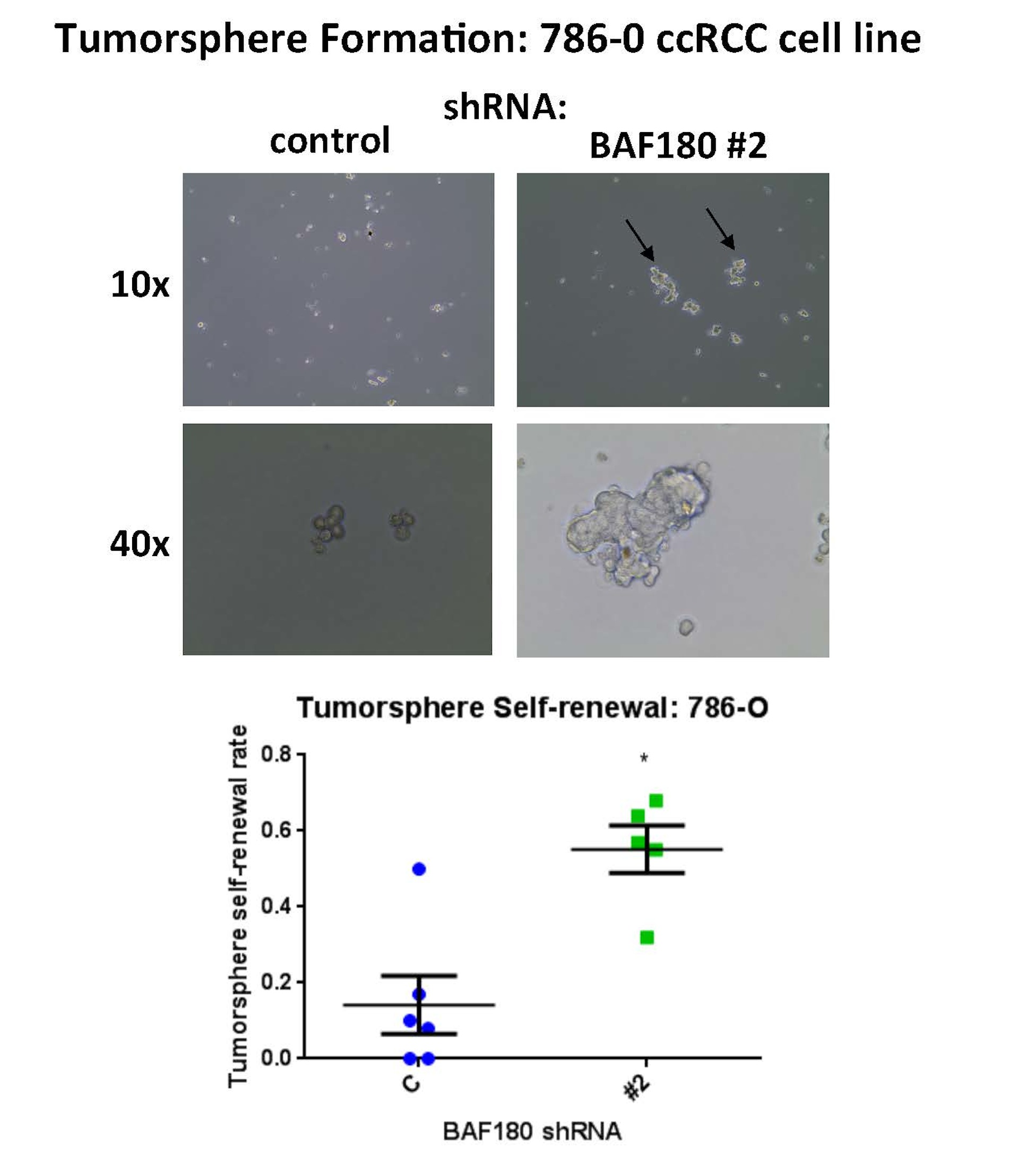Chromatin Regulation and Tumor Suppression
Mammalian SWI/SNF (mSWI/SNF) complexes are multi-subunit chromatin remodeling complexes that alter the connection between DNA and histone proteins. mSWI/SNF activity can subsequently result in transciptional activation or repression, depending on the gene and cellular context. All mSWI/SNF complexes contain one of two mutually exclusive ATP-dependent DNA-helicases (either BRM or BRG1). They also contain accessory subunits that are thought to confer functional specificity in vivo, by altering where the complexes bind in the genome and what co-factors they bind. BAF180, a 180-kDa protein encoded by the PBRM1 gene, is one such accessory subunit: it is one of the defining subunits of the PBAF mSWI/SNF complex. We found that PBRMI/BAF180 is mutated in breast cancer and regulates activation of P21. A multitude of recent sequencing studies have revealed that mSWI/SNF components are widely mutated in cancer. For example, PBRM1 mutations are found in ~40% of clear cell renal cell carcinoma (ccRCC) patients, making it the second most highly mutated gene in ccRCC (behind VHL). In this project, we are investigating the mechanisms by which BAF180 functions as a tumor suppressor.
We are also highly interested in the role that PTEN plays in the regulation of gene expression and chromatin access, since we have recently shown that PTEN interacts with RNA polymerase II and its transcription regulation machinery.

